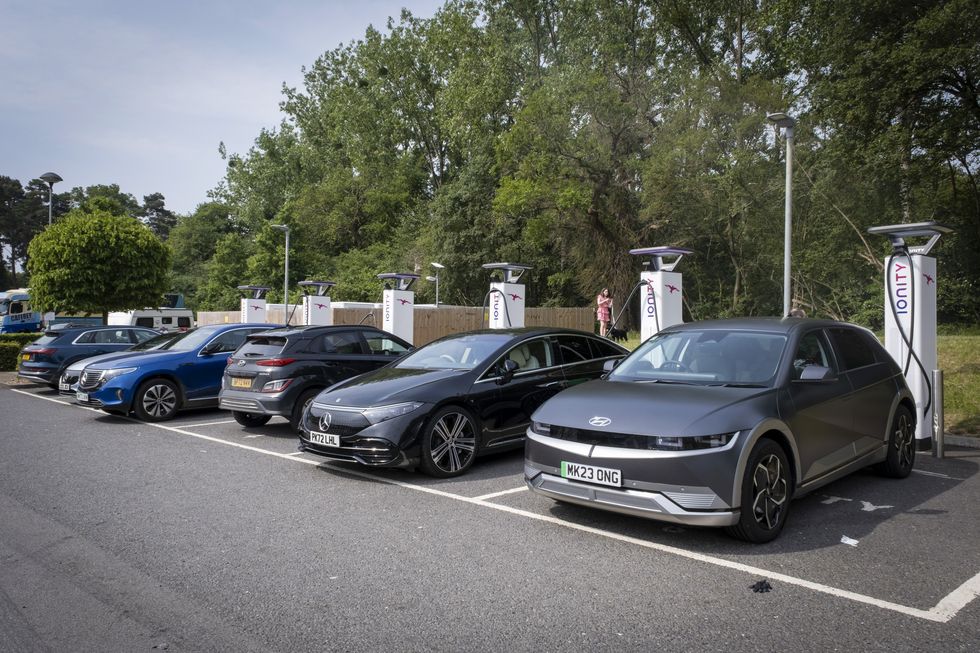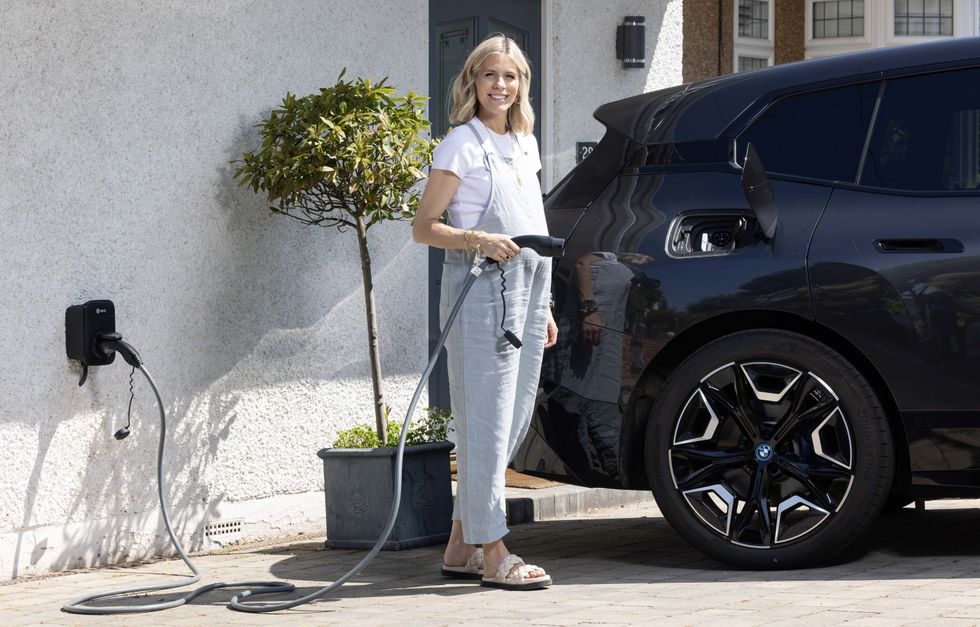Electric car drivers call for 'unnecessary and unfair' VAT rates to be slashed over charging 'injustice'

EV drivers charging off-peak at home could save £865 per year compared to petrol and diesel owners
Don't Miss
Most Read
Latest
Experts are demanding that the Chancellor introduces new measures during the Budget to slash the rate of VAT on chargers and “end electric vehicle injustice”.
Members from some of the most influential organisations in the electric vehicle sector have joined forces to call on the Government to implement new changes in the upcoming Spring Budget.
Campaign group FairCharge and other industry leaders are urging the Chancellor to offer a charging boost to electric car drivers and promote EV adoption.
Almost four in 10 electric vehicle owners do not own a property with a driveway, forcing them to use a public charger.
Do you have a story you'd like to share? Get in touch by emailing motoring@gbnews.uk

Experts are calling on the Government to make changes in the Budget on March 6
|GETTY
Public EV chargers attract a full VAT rate of 20 per cent, compared to those who can charge at home, who pay just five per cent on their energy bill.
Experts claim that the huge price differences are “significant” and act as an important barrier in getting drivers to switch.
In an open letter to Jeremy Hunt, experts are calling on the Government to slash the rate of VAT on these chargers and demand that more is done to promote EVs to drivers.
It has been suggested that drivers charging off-peak at home could save £865 per year compared to owners of internal combustion engine vehicles, although drivers using rapid public chargers pay £264 more over the course of a year.
Quentin Willson, motoring journalist and founder of FairCharge, said: “If the Government is serious about wider EV adoption, they must revisit this out-of-date VAT legislation - written in the early 1990s before the arrival of electric cars - and make it fit for purpose.
“The cost to the Treasury would be very small compared to the hundreds of billions spent supporting fuel duty, but the benefit to EV drivers without private parking and to urban air quality would be significant and remove this unnecessary barrier to EV adoption.”
The industry has warned that people without a driveway are facing an “unfair burden” that will undermine the UK’s levelling up and net zero targets.
A third of drivers have cited the cost of public EV charging as a key barrier to owning an electric vehicle.
Ian Plummer, commercial director at Auto Trader, supported the call, adding: “It is simply unfair that EV owners without driveways should have to pay more for the privilege of improving air quality.
“It’s time for the Treasury to address this injustice and give electric vehicles the best chance of widespread adoption, rather than remaining the preserve of the wealthy.”
Some charge point operators, including E.ON, have committed that any VAT cut could be passed on to motorists almost immediately.
The latest data from Zapmap shows there are 57,290 electric charging devices, with almost 2,000 chargers installed in January alone, in addition to a 47 per cent increase since February 2023.
LATEST DEVELOPMENTS:
- Drivers slapped with 33,000 parking tickets every day as private companies look to crack down on fines
- Car tax 'U-turn' hopes to go 'unnoticed' as money from UK drivers removed from road improvement projects
- Drivers warned to check the small print before buying cheap car insurance which could leave them unprotected

People charging at home could save more than £800 a year
|PA
Dev Chana, MD of E.ON Drive Infrastructure, said charging people without a driveway four times more is “effectively a tax”.
He added: “A fairer system which charges the same rate of VAT wherever and whenever you charge your electric car would be a real consumer win during this cost of living crisis and would also help speed up EV adoption by taking away an unnecessary and unfair cost.”
The letter has been signed by FairCharge, E.ON, ChargeUK, Auto Trader, Jaguar Land Rover, Stellantis, Polestar, Autocar Magazine, Greenpeace, Transport & Environment, The Campaign for Better Transport and others.










